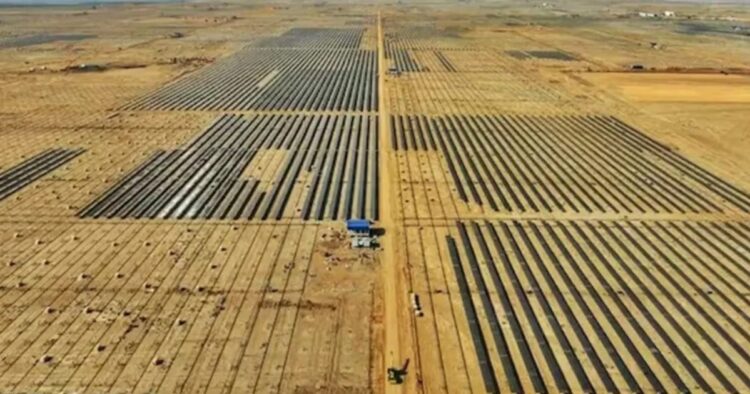Bharat’s multinational conglomerate Adani Group is looking at a major infrastructure boost in setting up the world’s largest green energy park in the Rann of Kutch desert area in Gujarat which stretches across a vast 726 sq km land mass.
In a post on X, Chairman of Adani Group Gautam Adani said it will be generating a total of 30 GW to power over 20 million homes.
“Proud to play a crucial role in India’s impressive strides in renewable energy as we build the world’s largest green energy park. This monumental project, covering 726 sq km in the challenging Rann desert, is visible even from space. We will generate 30 GW to power over 20 million homes,” said the Gautam Adani post.
Proud to play a crucial role in India's impressive strides in renewable energy as we build the world's largest green energy park. This monumental project, covering 726 sq km in the challenging Rann desert, is visible even from space. We will generate 30GW to power over 20 million… pic.twitter.com/FMIe8ln7Gn
— Gautam Adani (@gautam_adani) December 7, 2023
“Also, just 150 km away, in our karmabhoomi Mundra, we are creating one of the globe’s most extensive and integrated renewable energy manufacturing ecosystems for solar and wind. This marks a significant milestone in India’s journey towards sustainable energy, underlining our commitment to the Solar Alliance and the Atmanirbhar Bharat initiative.”
The group chairman, along with the X post, shared a few pictures where the ongoing large-scale project could be seen in its formative stage. This Adani Group project is expected to add to Bharat’s green energy capacity, besides helping in reaching its climate action pledges it made at COP.
Bharat committed to an ambitious five-part “Panchamrit” pledge at COP26, held in 2021. They included reaching 500 GW of non-fossil electricity capacity, generating half of all energy requirements from renewables and reducing emissions by 1 billion tonnes by 2030. Bharat also aims to reduce the emissions intensity of GDP by 45 per cent. Finally, Bharat commits to net-zero emissions by 2070.
















Comments